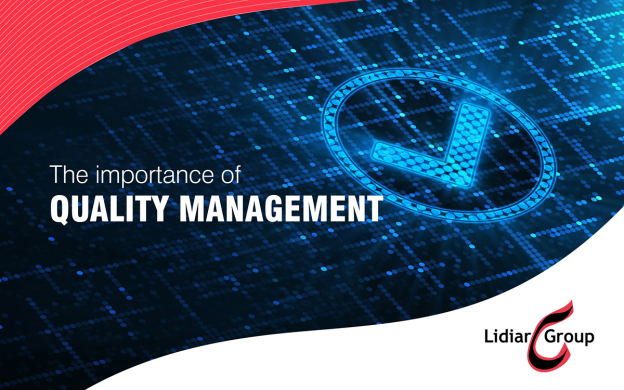
The Importance of Quality Management
Lidiar Group’s Natig Nabiyev is a Quality Management leader who has seen the benefits of taking a clear, precise and considered approach to quality management to give a project the best possible opportunity to achieve program, budget and contractual success.
In the latest of our Importance of Series, Natig discusses the Importance of Quality Management.
Quality Management plays a pivotal role in safeguarding the success of projects and organisations. By adopting a comprehensive approach to quality, businesses ensure that their products, services, and processes meet and often surpass established quality standards and expectations. This commitment to excellence is driven by the primary goal of enhancing customer satisfaction.
Rigorous adherence to quality standards is essential to mitigate risks associated with poor planning, resource limitations, and project budget constraints. Meeting prescribed criteria from governmental authorities, clients, and organisations becomes critical for success, ensuring that deliverables align with design standards and maintain the integrity of assets throughout their operational lifecycle.
Quality Management is not just a set of processes but a strategic imperative for organisations aiming to thrive in a competitive landscape. It serves as a proactive shield against client dissatisfaction, reputational damage, and missed business opportunities. Ultimately, the emphasis on quality is not just about meeting standards; it’s about exceeding customer expectations, fostering trust, and demonstrating a commitment to delivering superior products and services.
At Lidiar Group, prioritising customer needs is foundational to successful operations. Therefore, proper planning is essential to ensure compliance and the delivery of a high-quality product.
Drawing upon my extensive experience in overseeing Quality Management throughout the lifecycle of various projects, I can confidently assert that the presence of the Quality Function at every stage is indispensable. From the initial stages of project conception to execution, project establishment, delivery, completion, and even the subsequent handover and warranty period, the role of Quality Management is pivotal. Each of these phases holds a critical position in ensuring the overall success of a project.
Effective planning, particularly at each level of this comprehensive project lifecycle, significantly influences the quality outcomes and the seamless execution and completion of the project. The pre-execution phase requires meticulous attention to detail, project establishment demands strategic planning, and project delivery necessitates precision and adherence to quality standards. Furthermore, the critical phases of project completion, handover, and the warranty period demand sustained commitment to quality management to ensure that the delivered product or service meets and exceeds expectations.
My experience underscores the importance of integrating the Quality Function seamlessly into every facet of the project journey. This approach is not merely a best practice; it is a prerequisite for achieving successful project outcomes, client satisfaction, and long-term success in the dynamic landscape of project management consultancy.
At Lidiar Group, we have an experienced team of quality management professionals with experience across resources, energy, oil & gas, infrastructure, civil engineering, and transport projects. To learn more about quality, you can be assured of the following:
- Connect with Natig on LinkedIn: https://www.linkedin.com/in/nnabiyev/
- Visit: https://lidiargroup.com.au/
- Email: inquiry@lidiargroup.com.au
